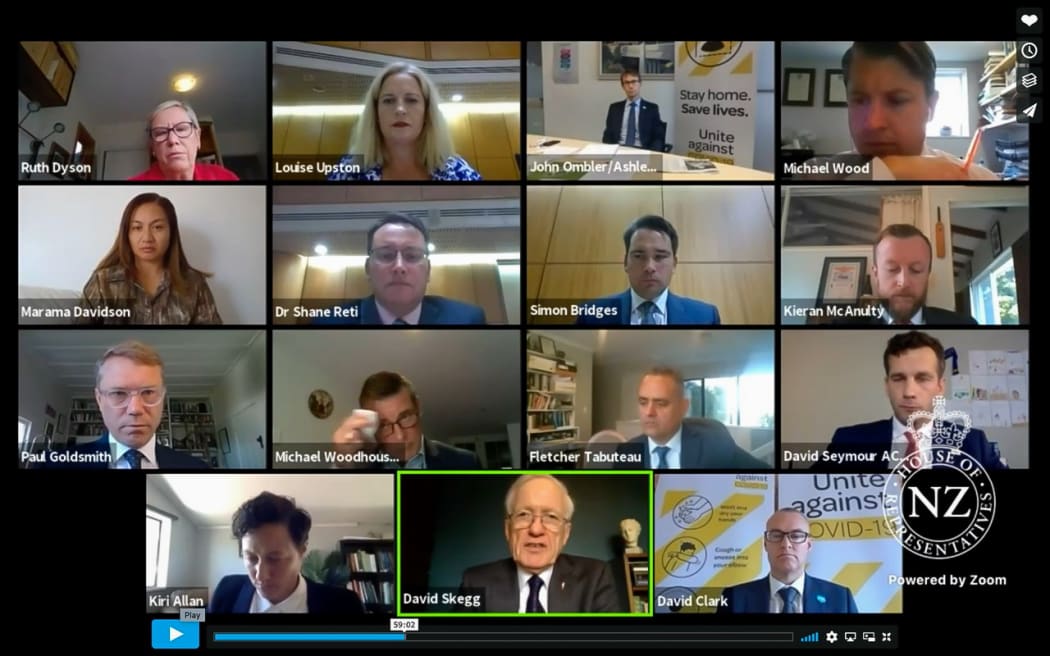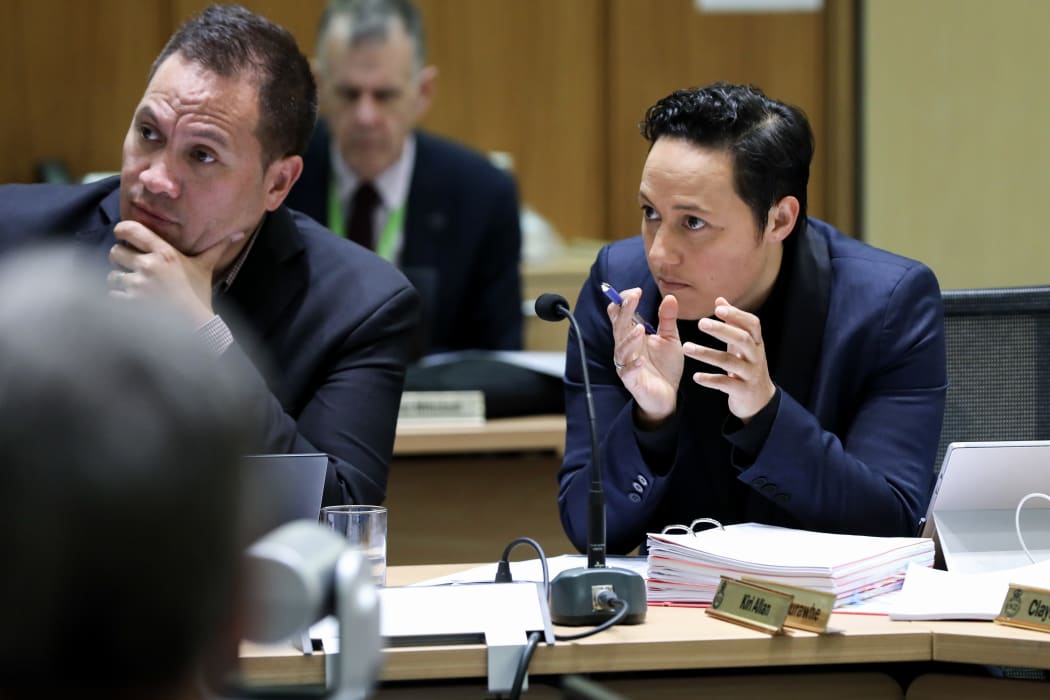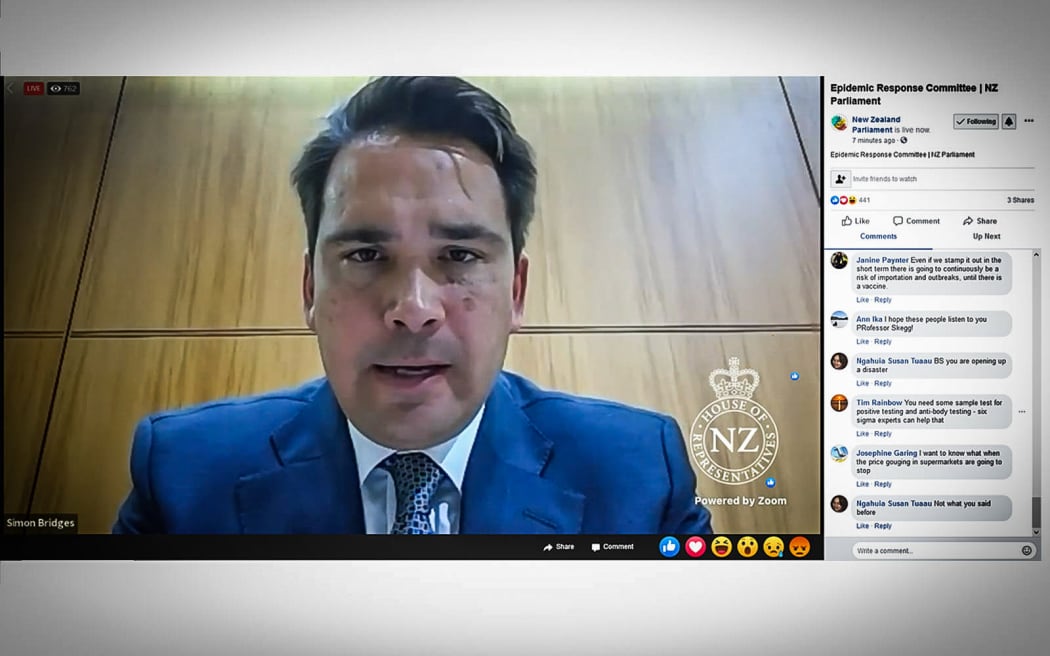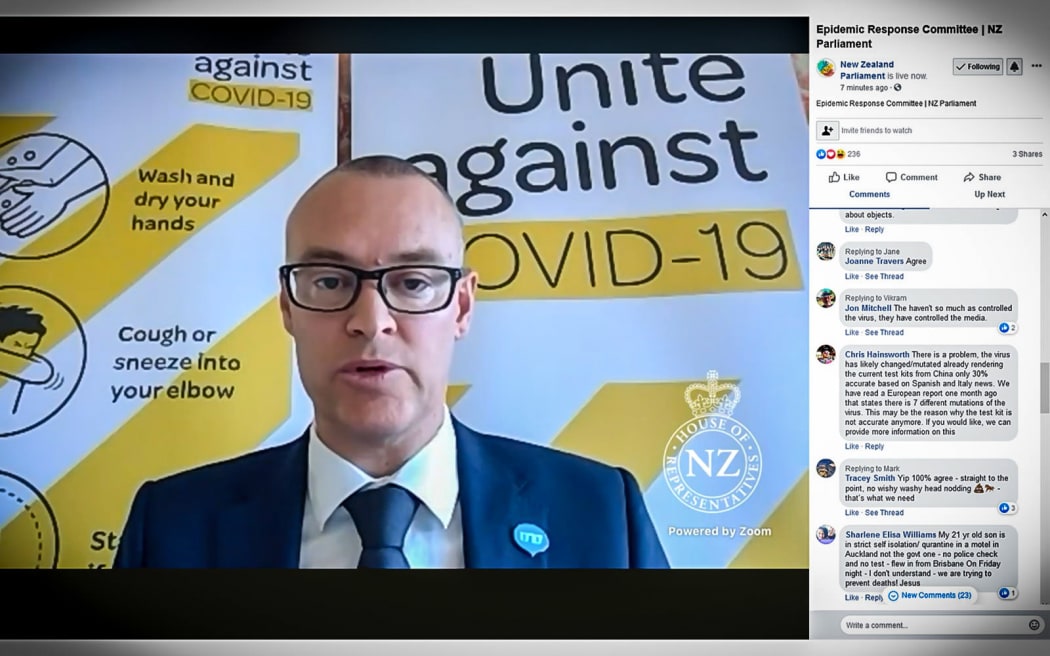The Epidemic Response Committee has now had its first meeting.
It might offend pedants everywhere to call it a mini-Parliament, but it is for the moment standing in for its parent in carrying out oversight of the Executive. The committee meetings are being televised, streamed, broadcast and shared widely. With so little competition for viewers and such high interest it would be very surprising if this wasn’t New Zealand’s most watched Select Committee ever. We’re probably not allowed to say it went viral.
For many first-time committee watchers there will be one important question...
Are Select Committees usually like this?

The Epidemic Response Committee 31 April. Select Committees have never looked like this before. Photo: Parliament
Yes. Pretty much. Barring the whole spread out across the rohe and meeting virtually thing.
This isn’t exactly a normal select committee but it’s pretty similar. And nothing like the raucus, cutting behaviour you see in Parliament’s debating chamber.
‘More tea vicar?’
It’s all very calm, all very polite. It’s practically Canadian.
MPs take turns. Questions are mostly reasonable. The object is (mostly) information.
‘But surely’, you say, ‘the MPs are being extra polite for this special occasion?’
No, in committee rooms they are usually polite. Even politer than this in fact. Especially when questioning members of the public.
Though they are often more combative than this if questioning ministers.

How a committee usually looks. Photo: VNP / Phil Smith
War by other means
Not every committee goes perfectly.
How well chaired they are makes a huge difference. Poor chairing is asking for problems in any group with inherent disagreements and rivalries.
When the topic under discussion is contentious it can get combative (topics like employment law, welfare, or gun control).
Sometimes an MP grandstands on an issue for media attention. There is possibly more incentive for opposition MPs to do this, but that isn’t universal. It may be an issue an MP really cares about, that they’re a spokesperson for, or there may be a pressure group they are wanting support from.
Parliament’s detectives
But mostly - it’s about getting the information, teasing out issues and problems; and trying to find the flaws in ‘the plan’. Whether the plan is a pandemic response or a proposed law the general idea is the same. Look for holes, run through scenarios, suggest implications.
Of course, obtaining information from witnesses and experts is also potentially gaining political ammunition. Sometimes that’s the whole point, sometimes that’s a by-product.
Most opposition MPs will say that they want a law to be good (well-devised), even if it’s bad (against their political philosophy).

Committee questionings are usually more 'up close and personal'. Here Kiri Allan follows a line of questioning. Photo: ©VNP / Phil Smith
Normality testing
So are these things typical of a normal select committee?
- A series of people give evidence - check.
- Submitters/experts begin with a statement - check.
- Submitters are asked questions by MPs - check.
- MPs ask follow-up questions (called supplementaries or ‘supps’) - check.
- MPs sometimes miss the point of an answer and plow on regardless - check.
- MPs sometimes ask very local questions to show they represent their constituents - check.
- MPs focus on a particular topic of interest - check.
Opposition MPs are particularly likely to coordinate their approaches. They are also often more vocal.
- The chairperson decides who asks questions - check.
In the usual committee room you can tell who has requested questions - online that is less obvious.
- MPs ask the same question multiple times hoping for a better or more useful answer - check.
- MPs request follow-up information - check.
Unusually, this committee has been empowered to demand information. Usually committees have to ask the Speaker to do that on their behalf.
- Governing party MPs ask clarifying questions to prevent a poor impression - check.

Screenshot of Simon Bridges chairing the Epidemic Response Committee Photo: Parliament
Enough similarities - what was different?
- An opposition MP chairing the committee - No.
It used to be unheard of to hand one’s opposition the reins. Last Parliament there was one (Ruth Dyson). This Parliament there are currently six opposition chairs amongst the 13 subject committees (Jian Yang, Alistair Scott, Parmjeet Parmar, Simon O'Connor, David Bennett, and Johnathan Young), plus Simon Bridges for this one. That is pretty unusual.
- Opposition MPs outnumber governing-party MPs - No.
This is highly unusual. This Parliament there have been (unusually) a few committees that are evenly split, but an opposition majority is unprecedented. An evenly split committee can slow down a committee's work and lead to bills returning with no agreed action suggested. A majority-opposition committee would require enormous trust. Or, as it turns out an unprecedented situation.
Professional Staring
Everyone having to look impressive and professional on camera for the whole duration is not normal. MPs don’t usually stare relentlessly at the camera like they are trying to hypnotise a goat. It looks exhausting.
MPs are usually busy looking through the documents they’ve been sent from the witness being questioned, or notes they’ve made. But doing that can look bad on camera.
Committees are now usually live streamed but the camera only looks at the current speaker. Even with that system MPs reading notes sometimes get accused of not paying attention. With this multi-camera version the MPs are going to need a lie-down or possibly new glasses.

Screenshot of the Minister of Health David Clark appearing before the Epidemic Response Committee. He's likely to set new records for the amount of time a minister spends testifying before a committee this year. Photo: Parliament
Here for the duration
A big difference was that these interrogations were much longer than they often are. Usually witnesses would get 10-20 minutes each; ministers are usually grilled just once annually for 30 minutes or more.
Committees usually have many competing demands and many witnesses to hear. The Epidemic Committee has the gift of time and a captive audience.
Heavyweights
Opposition leadership are not usually on select committees. They are too busy for that. And ministers are not on committees (except rarely). But other than that committees do often include the most senior opposition spokespeople on the topic under consideration.
But this committee is unusually weighty. This committee includes three party leaders, a number of subject specialists, quite a few current or former committee chairs and quite a few committee specialists. The parties are obviously taking it seriously.


